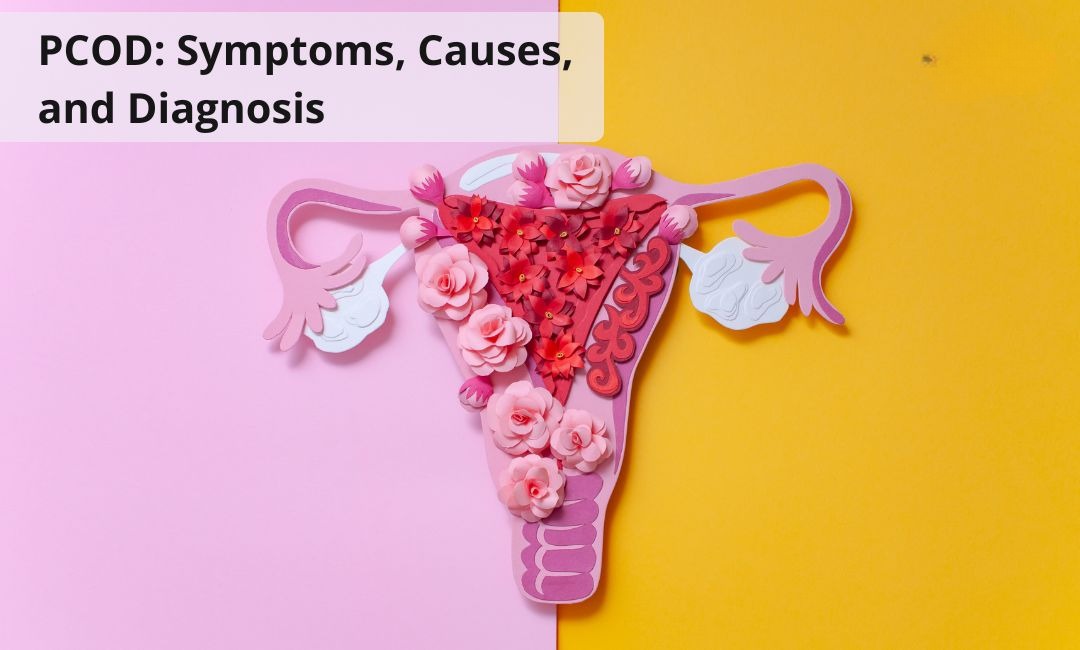PCOD and PCOS: Causes, Symptoms, Differences and Treatment


Polycystic Ovarian Disease (PCOD) is a medical condition in which a woman's ovaries generate immature or partially mature eggs in large numbers during reproductive age. These eggs develop into cysts in the ovaries over time. Due to the cysts, ovaries become large & secrete large amounts of male hormones (androgen) which causes infertility problems, irregular periods, unwanted weight gain, and other health issues.
While relatively common, most women are not aware of the signs and symptoms of PCOD, the implications of the condition, and available treatment options. So let us take a closer look.
Almost 10% of women in the world are suffering from PCOD. In compare to PCOD women with PCOS produce higher-than-normal amounts of male hormones. This hormone imbalance causes them to skip menstrual periods and makes it harder for them to get pregnant.
The symptoms associated with PCOD often leave a lasting impact on women’s physical and mental well-being. It is estimated that about 34% of the women suffering from PCOD problem also suffer from depression, and nearly 45% suffer from anxiety. This makes it essential to diagnose and manage the symptoms early to prevent PCOD problems in future.
Many of the women diagnosed with PCOD problem also experience poor quality of life-related to-Let us look at how we can differentiate between PCOD vs PCOS.
| PCOD | PCOS |
| PCOD is a medical condition where the women’s ovaries produce immature or partially impure eggs, which transform into cysts. | PCOS is a more severe condition where the ovaries produce a high quantity of male hormones, resulting in excess cyst formation. |
| About one-third of women worldwide suffer from PCOD, which means pretty common. | PCOS is a disease that affects fewer women than PCOD. |
| PCOD does not affect fertility in women. In about 80% of the cases, women can conceive with little help and medications. | PCOS affects female fertility adversely. As the woman is not ovulating regularly, it is difficult to conceive. Even if they do, there is a risk of miscarriage, premature birth, or complications during pregnancy. |
| PCOD has no serious complications. | Type 2 diabetes, high blood pressure, heart disease, and advanced endometrial cancer are serious complications associated with PCOS. |
| PCOD doesn’t have severe complications and can be healed with the right diet plan. | While polycystic ovary syndrome (PCOS) cannot be cured, the symptoms can be controlled through lifestyle changes and medicines. |
| PCOD does not release as many male hormones as PCOS, the symptoms are less frequent and rarely noticeable. | Women suffering from PCOS often struggle with the symptoms from a younger age. |
| PCOD sufferers are not threatened with such issues. | PCOS is inherently a metabolic disorder. This means it is often accompanied by a greater risk of developing high blood pressure (hypertension), diabetes, cardiovascular diseases, obesity, and cancers of the uterus and breast. |
| Women who suffer from PCOD experience mild to moderate symptoms. These symptoms can be managed with diet, lifestyle changes, and medication. | Women suffering from PCOS may require infertility treatments and active treatment protocols to manage other health conditions that they may develop. |
The exact cause of PCOD problem remains unclear. Doctors believe that PCOD can have both genetic and environmental causes. PCOD is often associated with –
Diagnosis is crucial in finding a solution to PCOD problems. Your gynecologist will start with a physical exam and take a history of your symptoms. The doctor may then recommend tests such as -
While there is no permanent cure for Polycystic Ovarian Disease (PCOD), it can be effectively managed through a combination of lifestyle changes, medications, and, in rare cases, surgical intervention. The goal of treatment is to regulate hormone levels, restore ovulation, manage symptoms, and prevent long-term complications such as diabetes, infertility, or cardiovascular issues.
While there is no permanent cure for Polycystic Ovarian Disease (PCOD), it can be effectively managed through a combination of lifestyle changes, medications, and, in rare cases, surgical intervention. The goal of treatment is to regulate hormone levels, restore ovulation, manage symptoms, and prevent long-term complications such as diabetes, infertility, or cardiovascular issues.